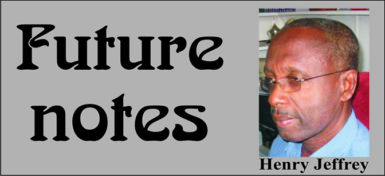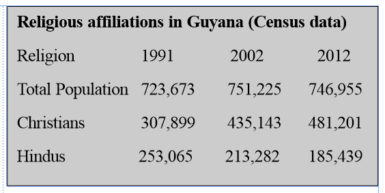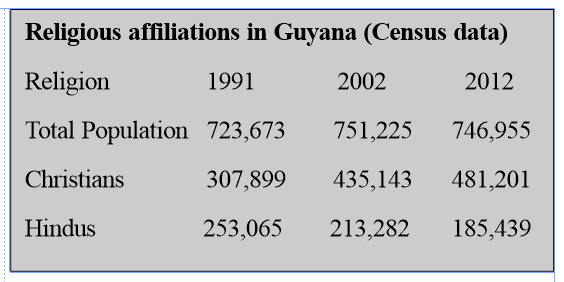 ‘Reasonable comprehensive doctrines, religious or non-religious, may be introduced in public political discussion at any time … provided that in due course proper political reasons – and not reasons given solely by comprehensive doctrines – are presented that are sufficient to support whatever the comprehensive doctrines are said to support’ (John Rawls. https://www.theguardian. com/world/2012/feb/14/is-religion-really-under-threat). I take this to mean that whether or not we take a religious or non-religious position, it must be backed up by proper logical and/or empirical reasoning. On this basis let me attempt to consider some of the issues raised by Swami Aksharananda’s quite surprisingly caustic, contradictory and persecutory response to this column (SN:11/04/2017).
‘Reasonable comprehensive doctrines, religious or non-religious, may be introduced in public political discussion at any time … provided that in due course proper political reasons – and not reasons given solely by comprehensive doctrines – are presented that are sufficient to support whatever the comprehensive doctrines are said to support’ (John Rawls. https://www.theguardian. com/world/2012/feb/14/is-religion-really-under-threat). I take this to mean that whether or not we take a religious or non-religious position, it must be backed up by proper logical and/or empirical reasoning. On this basis let me attempt to consider some of the issues raised by Swami Aksharananda’s quite surprisingly caustic, contradictory and persecutory response to this column (SN:11/04/2017).
According to a Gallup Poll, in America alone, over 70% of its 324 million population are Christians and 92% of regular churchgoers believe in hell and many of these people literally believe in everlasting hell fire. Yet the Swami made the following sweeping claim: ‘Every theology of everlasting hell fire … must of necessity be a theology of hate and violence.’ In this context, what are we to make of his questions, ‘Has humanity not gone beyond a theology of “us and them,” “self and other” “saved and unsaved”?’ Indeed, how is his statement much different from Faithful Word Baptist Church’s claim that, ‘… Hinduism is clearly a false religion, clearly different than the bible, clearly a satanic religion, very wicked’ (http://sanderson1611.blogspot. com/2015/04/hinduism-in-light-of-bible.html).
But such doctrinal jousting aside, Swami Aksharananda should be able to provide some kind of support for his inflammatory suggestion that the Ministry of Education (MOE), the government of Guyana and the Guyanese Christian establishment may be conspiring against Hinduism. He said of Ms. Kamlawattie Balroop, ‘her competence to make a decision is not in question’, but notwithstanding her strident response in support of the decision to give Pastor Steven Anderson a hearing, the wise Swami claimed that it was ‘Hardly likely’ that the decision was hers. ‘It seems evident’ he claimed, that instructions to the heads to accommodate Pastor Anderson emanated from the Ministry of Education itself.’ He then proceeded to widen the net, for according to him, the errant church was accommodated so willingly ‘for there are not only people in Guyana who want to make Christianity a state religion’ but also those who simplistically believe that ‘if all are converted to Christianity there will be greater unity in Guyana. With this in mind, there are those in the Ministry of Education and Culture who will obviously have a vested interest in the conversion of Hindus.’
Thankfully, the MOE has now made it quite clear that the decision to accommodate Mr. Anderson was made at school level. Furthermore, I can assure Swami Aksharananda that in my decades of association with those in the MOE I have not heard a whiff of such thinking. Indeed, until he mentioned it, such a thought had never entered my mind. Therefore, if his contention about those wanting ‘greater national unity in Guyana’ is intended as anything more than a swipe at the present regime and/or a figment of his imagination, based upon the principle established in the first paragraph, it is for him to provide evidence of it so we can join him in combating what would be a very archaic and troubling development.
One has to be quite unworldly to not know that conquerors bring their culture, of which religion is only one part, and that in some cases religion helps to sustain their regime by denigrating the conquered. I said as much in the column to which the Swami responded. However, it is quite easy and not unusual for the self-interested to mistake this alliance between the state and religion as one dimensional. Religions are usually very factious: Hinduism is a product of such factiousness and all one could say of modern-day Christianity is ‘lo behold!’ The result is that the relationship between religion and the colonising venture is usually quite complex.
Historically, I view Bartolomé de las Casas, conquistador, priest, first Spanish bishop in the Americas, protector of the native Indians against slavery but supporter of African trans-Atlantic slavery and bane of the local ruling class as the epitome of this complexity. Also, William Wilberforce et al. warred with the slave traders, and US evangelicals have been everywhere propagandising for more development aid, female education, against the sexual exploitation of women, suttee in India and foot binding in China, etc. Therefore, I am against racially categorizing religion. As the figures below demonstrate Hinduism faces a problem of diminishing membership, but this is happening to mainstream religions everywhere and has little to do with the proselytizing of ‘white men’ with their ‘white Jesus!’
 Pentecostals 54,490 126,830 170,289 All the major religions in Guyana have taken a beating: Anglicans, Roman Catholics and Muslims that had been respectively 52,418, 61,122 and 54,554 in 2002 were reduced to 38,962, 52,901 and 50,572 in 2012. As can be seen above, the runaway train is the Pentecostals. In the US, between 2007 and 2014, Catholics, mainline protestants and even evangelical protestants fell respectively from 23.9%, 18.1% and 26.3% respectively to 20.8%, 14.7% and 25.4% but those unaffiliated to any religion rose from 16.1% in 2007 and 22.8% in 2014 (Pew Research Centre). Alliances do change and I believe that there are less incendiary explanations of such changes.
Pentecostals 54,490 126,830 170,289 All the major religions in Guyana have taken a beating: Anglicans, Roman Catholics and Muslims that had been respectively 52,418, 61,122 and 54,554 in 2002 were reduced to 38,962, 52,901 and 50,572 in 2012. As can be seen above, the runaway train is the Pentecostals. In the US, between 2007 and 2014, Catholics, mainline protestants and even evangelical protestants fell respectively from 23.9%, 18.1% and 26.3% respectively to 20.8%, 14.7% and 25.4% but those unaffiliated to any religion rose from 16.1% in 2007 and 22.8% in 2014 (Pew Research Centre). Alliances do change and I believe that there are less incendiary explanations of such changes.
We need not be detained by the Swami’s confusing of ‘constructivism’ with some Christian doctrinal dogma of ‘religious inclusivism [which] grants that other religions may possess a ray of truth, but the fullness of truth is only in Christianity.’ A word of caution, however, about his nice sounding contention that ‘Tolerating intolerance is an absurdity.’ Whether it is possible to accept a reasonable framework of ‘tolerance’ without occasionally opening the door to ‘intolerance’ is questionable. I pointed out in my column that we can only seriously mitigate intolerance ‘by a level of bureaucratization that is likely to be extremely exclusive.’ In this case, we run to the MOE and Ministry of Citizenship with the plea of ‘secularism’ which, if not carefully handled can also be ‘deeply intolerant.’ Thus, please note, Swami, that over 160 years after the publication of the Communist Manifesto we heard that, ‘A spectre is haunting Europe – the spectre of secularism. All the powers of old Europe have entered into a holy alliance to exorcise this spectre: the pope, politicians from both the (British) Conservative and Labour parties’ (John Rawls. Op. cit.).
We need to wait until the Ministry of Education outlines how it reads the part of our constitution which states that ‘no person attending any place of education shall be required to receive religious instruction’. We shall see if by this is meant that every child must be left to the mercy of its familial religious enclave.
henryjeffrey@yahoo.com








